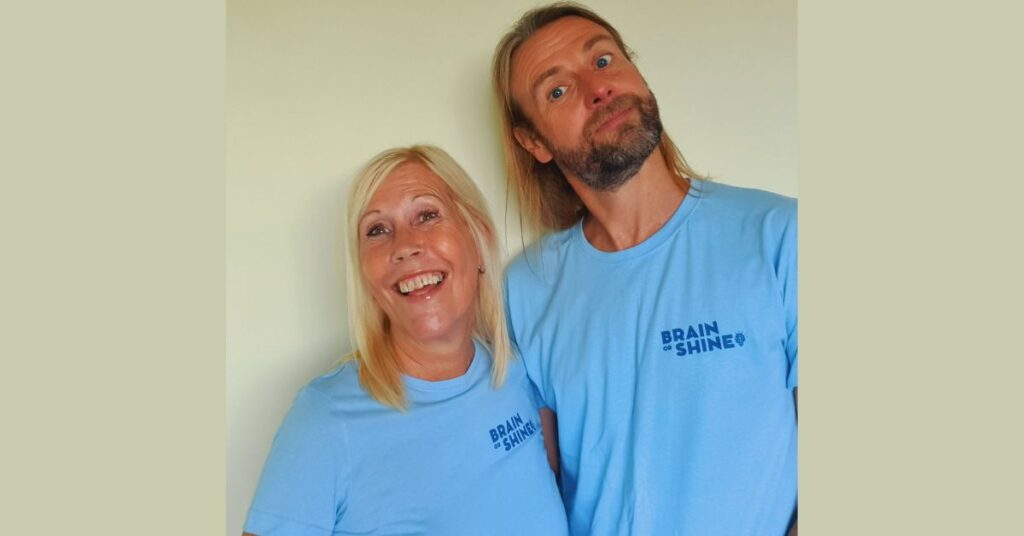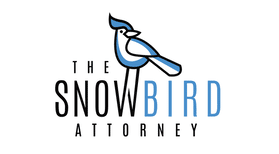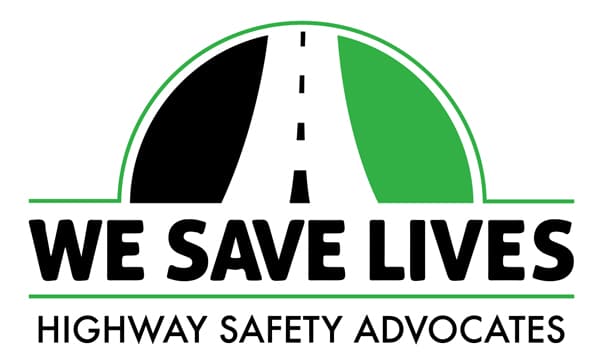
In 2012, life was great. I was a freelance motivational speaker, travelling all over the country and working with teenagers in schools. It was such a buzz. We loved travel and my wife, Jules and I, were enjoying a cheeky week away on the beautiful island of Fuerteventura. This is when the phrase, ‘holiday of a lifetime’ took on a new meaning, and not in a good way.
I did something that I do many times a day, I went to the toilet, blacked out and hit my head. Yep, as simple as that! No horrific accident, no attack, just a simple trip to the toilet and our lives changed forever. When we got back to England, we went straight to A&E to get a brain scan. And the results were a total shock! We were told that my traumatic brain injury was so serious that over 95% of people didn’t survive, let alone be able to walk, talk and function ‘normally’. We knew that I had done some damage, but we weren’t prepared for this.
There were hematomas on the right side and one on the left side and my brain has been misaligned due to the trauma and swelling plus there was a fracture to my skull and right ear. The next decision we had to make was whether I should have a craniotomy operation. Now this sounded scary. The operation would involve removing part of the skull to reach the brain and a hospital stay of 3 to 6 months. I’d been conscious for over a week by this point and after some serious consideration, I decided to not go ahead with the operation and take the risk that the two blood clots would disperse. As a family it was so difficult, but they supported my decision and at the end of the day, only I knew how I felt inside.
The (Bumpy) Road to Recovery
I spent the next few weeks at home resting with a sore, groggy head. A couple of hospital appointments later, we received some fantastic news. The swelling had started to disperse. Eight weeks later, I was given the all clear on the final scan. Except for a few warnings about playing physical sports (man, I was going to miss football), we were given the impression that I could go back to living life as before. However, sadly this just wasn’t the case.
No one had prepared us for the non-physical effects of sustaining a brain injury. Gradually over the coming months, Jules noticed changes in my personality. Where I used to be laid-back, I started to get stressed very quickly. Where I used to have lots of energy, I started to feel really tired after a day at work. Where I used to be able to solve problems, I now struggled to understand the simplest of tasks. We started to worry.
After speaking to my neurologist, we were told that it could take years for my brain to heal. But as time went on, things started to get worse rather than better. I suffered from horrendous fatigue, mood swings, confusion, sleepless nights, nightmares, anxiety, and depression. We didn’t know what to do and who to turn to for help. We felt lost. And after six years, we felt broken.
The Turning Point
After visiting my neurologist again, he referred us to a brain injury hospital, 10 miles from our home which we didn’t even know existed. Actually, we didn’t even know the term brain injury existed at this point! Luckily, I was welcomed into a support group which changed our lives. We learnt what a brain injury was, how to manage fatigue and some of the other side effects that were affecting me on a day-to-day basis. We began to get our lives back on track. Over 10 years on, I’m probably as good as I’m ever going to get. I still suffer with many of these symptoms on a daily basis but having this support and knowledge has shown us how to focus on the positive things and given us insight into how to live our lives on our terms.
What Now?
Since my brain injury, I spent a lot of focusing on the things I can do as opposed to what I can’t. We’d already set up our own business – Future Toolbox. Future Toolbox was created through a passion to help individuals grow and make a difference to people’s lives. Our mission is to help people become the best version of themselves and live life to the fullest. We do this through motivational speeches, mindset coaching, school workshops, and writing books.
Recently we created a project called Brain or Shine. We don’t want anyone to have to go through the struggles that we did for so long. So, now it’s our time to spread our knowledge and support. We started this a few years ago by writing, What the Hell Just Happened?, a book about Mark’s brain injury from both of our perspectives. However, this was not enough. We wanted to make more of a difference. And that is where Brain or Shine was born. Our goal is to create a support mechanism and a community for people affected by any form of brain injury. We have resources for brain injury survivors, their families, friends, work colleagues, and employers.
The struggles of brain injury still affect me on a daily basis but life is very much on our own terms now. I can rest when I need but also enjoy all the things that I love doing with Brain or Shine. I’m a keen runner and have run over 100 half marathons. Travel, trekking, cycling and paddle boarding are also big passions of ours and more recently, I even taken up learning to sing and play the guitar. I was also honored to be named the Alex Richardson Achiever of the Year at the Headway Annual Awards in 2022.
Jules and I have been happily married for over 20 years now and the strength and love in our relationship has got us through the tough times to where we are today. We’ve come a long way on our journey, and we’re very grateful to be where we are now. A simple quote to finish with is, ‘Focus on the things you can do and not the things that you can’t do and, then find a way of doing them’.
Many thanks to Mark & Jules for sharing their story with us and for their support. For more information on Brain or Shine please visit: www.brainorshine.com.
This article is also featured in our 2024 Summer Issue of Sharing our Recovery.
The Crash Support Network is a unique one-of-a-kind website consisting of an online support group, a crash survivor blog, a quarterly newsletter, “Sharing Our Recovery” as well as highly informative articles. Our website is based on relationship-building and puts the needs of survivors first by creating a helpful resource for victims and survivors of motor vehicle crashes.





